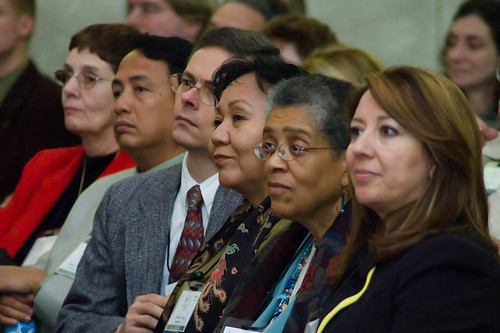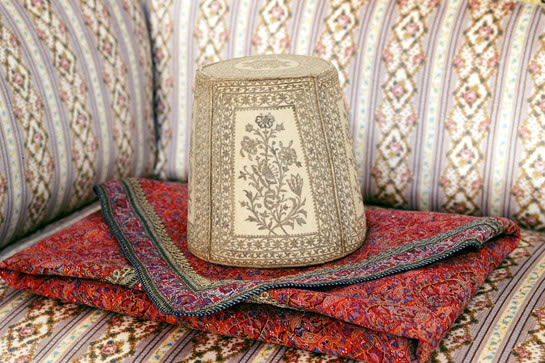arthra
Baha'i
The Ridwan season is occurring later in April and is a twelve day season with the First Day, Ninth Day and Twelfth Days of Ridwan as Holy Days on which work and school are suspended.
The season commemorates the announcement of Baha'u'llah while in what we call the Ridwan Garden that He was the One promised by the Bab... "He Whom God will make manifest."
With this declaration the Baha'i community was born..those who recognized Baha'u'llah as the One promised by the Bab. It occurred April 21st - May 2nd in the Gregorian Calendar in 1863 in an island in the Tigris River in Baghdad. Baha'u'llah had been exiled from Persia by the Shah in 1853 and the Sultan of the Ottoman Empire had summoned Baha'u'llah to Constantinople (Instanbul)... En route He spent twelve days in the Garden of the Najib Pasha..
One of the Tablets revealed there by Baha'u'llah reads in part:
Tablet of the Feast of Ridvan
by Bahá'u'lláh
translated by Ali Kuli Khan and Marzieh Gail.
HE IS THE ALMIGHTY LORD!
Lo, this is the garden of Paradise wherein is raised the Voice of God, the Dominant, the Strong; Here do the immaculate Maids of Heaven dwell, they whom no eye hath seen save only God's, the Sanctified, the Well-Beloved; Herein the eternal nightingale singeth on the bough of the sacred Lote-Tree a song that bedazzaleth the minds, and herein are the needy led to the haven of wealth, and all men guided to the Word of God; verily this is a manifest truth. (Here is the song that the nightingale singeth
IN THY NAME THAT IS GOD,
Thou art verily God!
O sacred Monk, ring out the bells, for the day of God hath come, and the Beauty of the All-Glorious is established on the holy, shining throne.
Glory to Thee, O God, O Thou who art God,
O prophet of wisdom, Hud, beat thou upon thy drum, in the name of the Lord, the Precious, the Bountiful, for the Temple of Holiness is seated upon His high, unapproachable throne.
Glory to Thee, O God, O Thou who art God,
O Thou beauty of eternity, pluck with the fingers of the spirit at the strings of Thy lute that is wondrous and Holy, for the Heavenly Beauty hath come in His garment of glimmering silk.
Glory to Thee, O God, O Thou who art God,
O angel of light, sound thou thy trumpet to herald this appearance, for the letter HA hath mounted above the letter of pre-existent might.
Glory to Thee, O God, O Thou who art God,
A Tablet of the Feast of Ridvan
More later....
The season commemorates the announcement of Baha'u'llah while in what we call the Ridwan Garden that He was the One promised by the Bab... "He Whom God will make manifest."
With this declaration the Baha'i community was born..those who recognized Baha'u'llah as the One promised by the Bab. It occurred April 21st - May 2nd in the Gregorian Calendar in 1863 in an island in the Tigris River in Baghdad. Baha'u'llah had been exiled from Persia by the Shah in 1853 and the Sultan of the Ottoman Empire had summoned Baha'u'llah to Constantinople (Instanbul)... En route He spent twelve days in the Garden of the Najib Pasha..
One of the Tablets revealed there by Baha'u'llah reads in part:
Tablet of the Feast of Ridvan
by Bahá'u'lláh
translated by Ali Kuli Khan and Marzieh Gail.
HE IS THE ALMIGHTY LORD!
Lo, this is the garden of Paradise wherein is raised the Voice of God, the Dominant, the Strong; Here do the immaculate Maids of Heaven dwell, they whom no eye hath seen save only God's, the Sanctified, the Well-Beloved; Herein the eternal nightingale singeth on the bough of the sacred Lote-Tree a song that bedazzaleth the minds, and herein are the needy led to the haven of wealth, and all men guided to the Word of God; verily this is a manifest truth. (Here is the song that the nightingale singeth
IN THY NAME THAT IS GOD,
Thou art verily God!
O sacred Monk, ring out the bells, for the day of God hath come, and the Beauty of the All-Glorious is established on the holy, shining throne.
Glory to Thee, O God, O Thou who art God,
O Thou who alone art God!
O prophet of wisdom, Hud, beat thou upon thy drum, in the name of the Lord, the Precious, the Bountiful, for the Temple of Holiness is seated upon His high, unapproachable throne.
Glory to Thee, O God, O Thou who art God,
O Thou who alone art God!
O Thou beauty of eternity, pluck with the fingers of the spirit at the strings of Thy lute that is wondrous and Holy, for the Heavenly Beauty hath come in His garment of glimmering silk.
Glory to Thee, O God, O Thou who art God,
O Thou who alone art God!
O angel of light, sound thou thy trumpet to herald this appearance, for the letter HA hath mounted above the letter of pre-existent might.
Glory to Thee, O God, O Thou who art God,
O Thou who alone art God!
A Tablet of the Feast of Ridvan
More later....



